debt settlement can help you pay off your debt, but it is dangerous and you might have other options.
When debt feels out of control, it may be debilitating. Perhaps your debts are past due in collections, or you owe more than you believe you could ever pay back.
In these situations, debt settlement could seem like a lifeline, but it is dangerous because it can take years to complete, harm your credit, and come with expensive fees.
Find out how debt settlement operates and contrast it with other debt repayment methods such as debt consolidation and credit counseling.
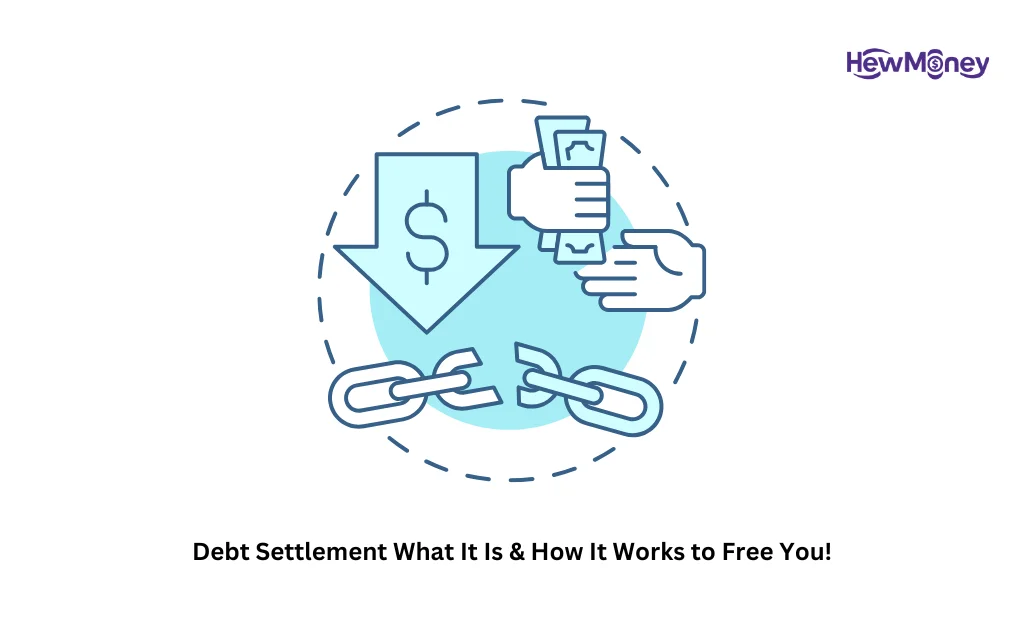
What is debt settlement?
The process of bargaining with your creditors and “settling” on a sum that is less than what you now owe is known as debt settlement. Usually, a third party, such as a debt settlement business, assists with it.
You do not need to worry about being sued for that specific debt once the creditor accepts the settlement because it will no longer be able to pursue you for the money.
Although debt settlement offers you a plan to pay off your debt, which can be a great relief, the procedure is not always successful and can take up to three or four years.
How does debt settlement work?
In order to lower the amount you owe on unsecured debt, such as credit cards, medical bills, or personal loans, debt settlement firms bargain with creditors on your behalf. Secured debt, such as a mortgage or auto loan, cannot be settled.
A debt settlement organization will urge you to cease making payments on your debts right away and instead open an escrow account and place a monthly payment there because these offers are only attractive to creditors if it appears that you will not pay at all. The settlement company handles the deal once you have saved up enough cash for a lump-sum offer.
Settlement of debt is not free. 15% to 25% of the amount you owe is the cost that most businesses charge. For instance, you will pay $2,500 after the settlement is finalized (in addition to the negotiated amount to your creditor) if you owe $10,000 and the debt settlement organization charges a fee of 25%. Until your debt is settled, a debt settlement company cannot collect this charge.
Is debt settlement a good idea?
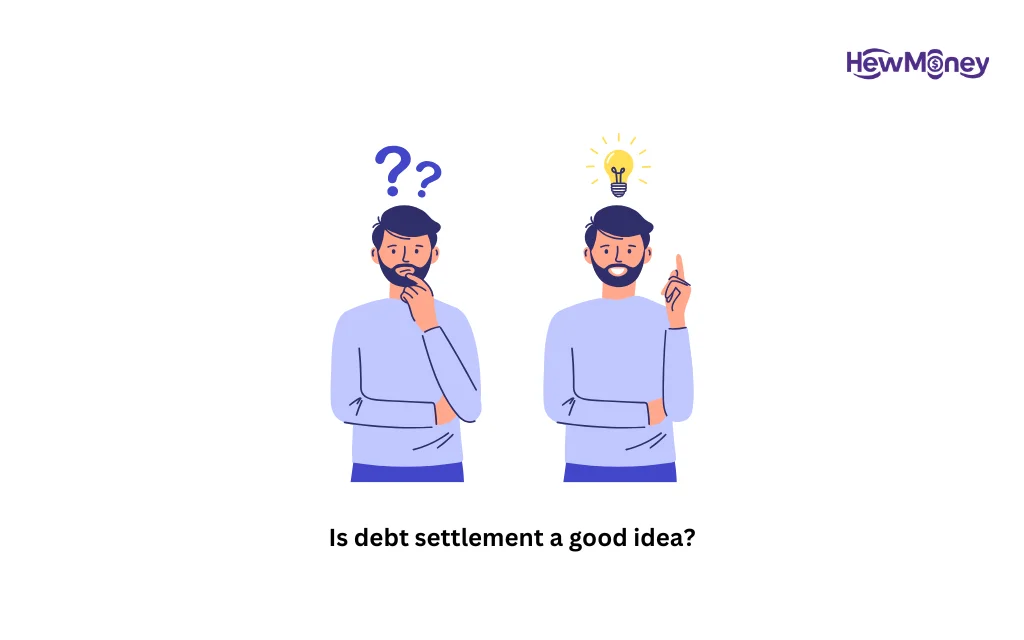
Regarding debt settlement, the Consumer Financial Protection Bureau issues a warning [1]. According to the CFPB, dealing with these businesses is dangerous, and you should think about other options (more on those below). Before you decide, think about these hazards.
- Your credit will suffer since resolved debts and delinquent accounts remain on your credit report for seven years, which may make it more difficult to get future credit that is affordable.
- Interest and penalties accrue: You may be subject to late fines and other financial penalties if you cease making your debt payments. Additionally, you can incur interest, which would raise your total debt.
- When a debt settles, you will be required to pay a fee: Based on the balance of the debt at the time of enrollment, the majority of debt settlement organizations charge a percentage of each debt they settle. Some charge a portion of the debt that has been settled.
- You might have to pay additional fees: Customers may be required to pay additional fees in addition to the settlement price, such as a setup fee to open the specific escrow account and a monthly maintenance fee.
- Forgiven debt may be subject to taxes: In general, forgiven debt is treated as income by the Internal Revenue Service. If you settle your debt, you might want to speak with a tax expert about the new tax responsibilities you will be taking on.
- Success is not guaranteed because debt settlement is not always successful. Even if they do, creditors may reject the settlement offer because not all of them cooperate with debt settlement firms. Any possible savings could be completely erased by the fees and interest that mount up in the interim, depending on how long settlement takes.
Does debt settlement hurt your credit?
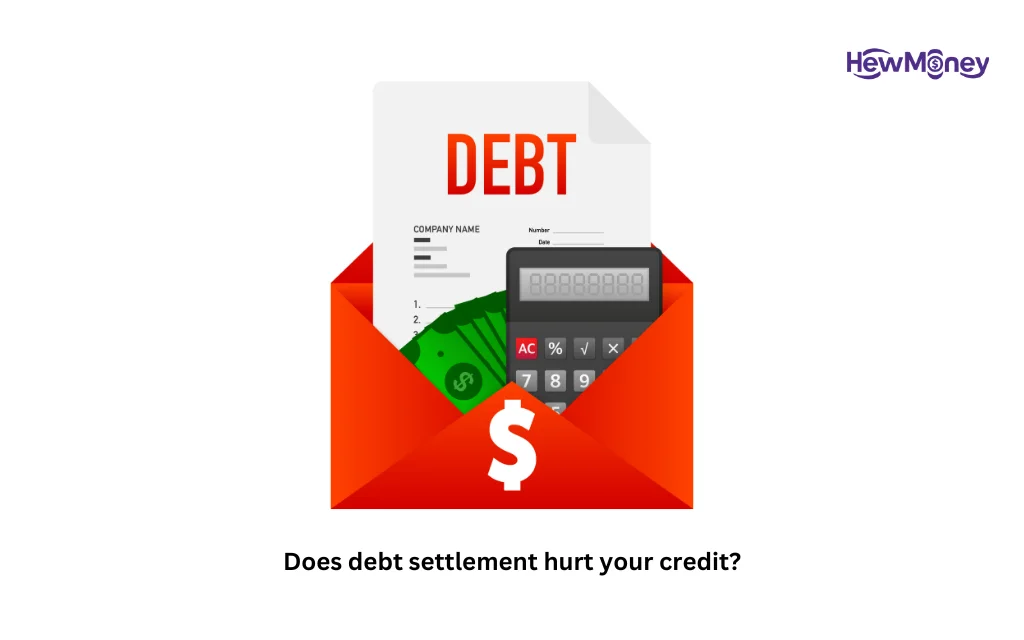
Your credit may suffer from debt settlement in a number of ways:
- missing payments: After 30 days, your creditors will notify the credit bureaus of the missing payments as you cease making your payments. Your credit score is largely based on your payment history, therefore any late or missed payments will lower your score.
- Total debt could rise: Your credit usage ratio will rise as you accrue interest on your credit cards. This ratio is a crucial component in determining your credit score since it shows how much of your available credit you are using. Generally speaking, your credit score will be worse the more debt you have compared to your available credit.
- Collections activity: Your debt may be passed over to internal or external collections when it becomes farther past due. Depending on how much your credit score has already been impacted, this debt will be included on your credit report as a collections item, which could further reduce it.
- Settled accounts appear on your credit report because they demonstrate that you were unable to repay your debt in full, which is a red flag to potential lenders. For seven years, settled accounts may remain on your credit record.
Nevertheless, it could be preferable to pay anything than nothing at all. Debt settlement might be the wisest course of action if you have to choose between ignoring your debt and paying it off.
Here’s how to choose a safe debt settlement company
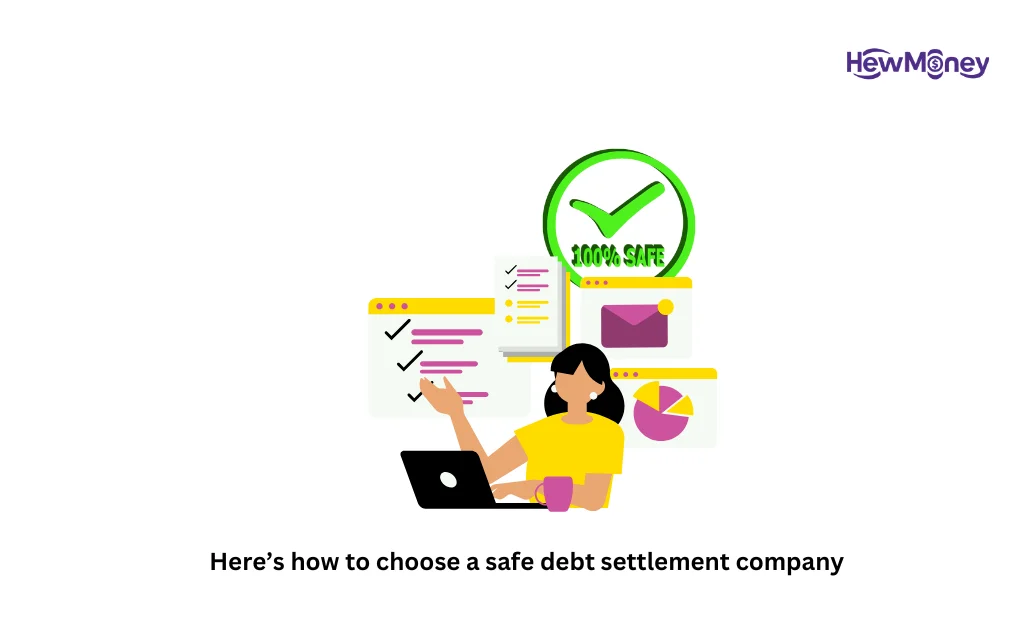
1. Research company reviews and look for accreditations
Investigate internet reviews of any debt settlement firm you are thinking about as part of your due diligence. In addition to checking with the Better Business Bureau to discover whether there has been a history of complaints, this can also include posts on Reddit or other forum-style websites.
Reviews of some of the biggest debt settlement firms are also kept up to date by financial websites such as NerdWallet:
- Freedom Debt Relief
- Relief of the National Debt
- Recognized Debt Relief
Choose reputable businesses with years of experience and external accreditations, including those from the American Association for Debt Resolution.
2. Beware of upfront fees or false promises
According to the CFPB, avoid doing business with companies that demand an advance settlement fee or promise to pay off your debts for “pennies on the dollar” or a guaranteed decrease amount. Additionally, debt settlement firms should not guarantee that they can halt lawsuits or debt collection calls.
According to the Federal Trade Commission, before a company offers a settlement offer, it should be clear about costs, conditions of service, how long it will take to settle your obligations, and how much money you need to save.
3. Say yes to the introductory call
The majority of debt settlement firms include a free, initial phone call in their offerings. Use this free call to learn more about a company’s operations and ask any crucial questions you may have, such as the cost of their debt settlement program, how it can affect your credit score, and how long it often takes for consumers to settle their debts.
How to negotiate debt settlement on your own
Since you have control over the timeframe, you might try negotiating a settlement on your own to avoid paying costs and possibly get out of debt sooner.
In order to make a lump-sum offer, collect as much money as you can. This could entail selling precious possessions, acquiring a part-time work, or finding other urgent ways to raise money.
Some creditors could have a policy against debt settlement, but others might be more inclined to accept a lump-sum offer, which provides them with money right away rather than risking unpaid bills.
Alternatives to debt settlement
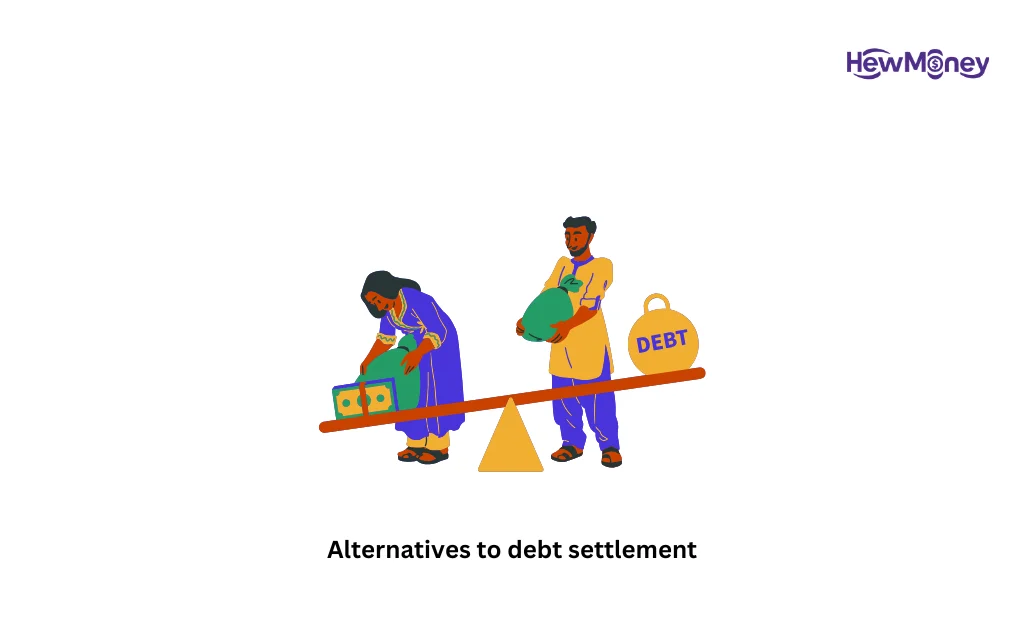
There are other options for dealing with crippling debt besides debt settlement. Before choosing to enter into a settlement, think about these alternatives.
Credit counseling
If you have credit card debt, working with a respectable, nonprofit credit counseling organization is a safer option.
A debt management plan, which combines your credit card payments into a single payment with reduced interest and provides you with a schedule to pay off the debt in three to five years, can be enrolled with the assistance of credit counselors. Usually, these programs have a minor monthly service charge in addition to a one-time setup fee. Your credit score will not suffer long-term harm from debt management, in contrast to debt settlement.
Debt consolidation loans
Taking for a debt consolidation loan from a credit union or online lender and using the funds to pay off all of your bills at once is an additional choice. After that, you pay back the loan over a certain period of time—typically two to seven years—at a fixed rate. If you are eligible for a lower interest rate than the average rate for all of your current debts, these loans make the most sense.
These loans will not have the same negative impact on your credit report as debt settlement because they assist you in paying off the obligation in full. Additionally, you can even rebuild your credit by demonstrating a favorable payment history if you make all of your payments on time on your new loan.
Bankruptcy
Lastly, filing for bankruptcy could be a possibility, especially if you have no plan to pay off your debt and it surpasses 40% of your income. It is typically free to consult a bankruptcy lawyer, but if you decide to go this route, you will have to pay filing and legal expenses. Like debt settlement, bankruptcy might harm your credit, so you should only think about it after you have looked into alternative options.

